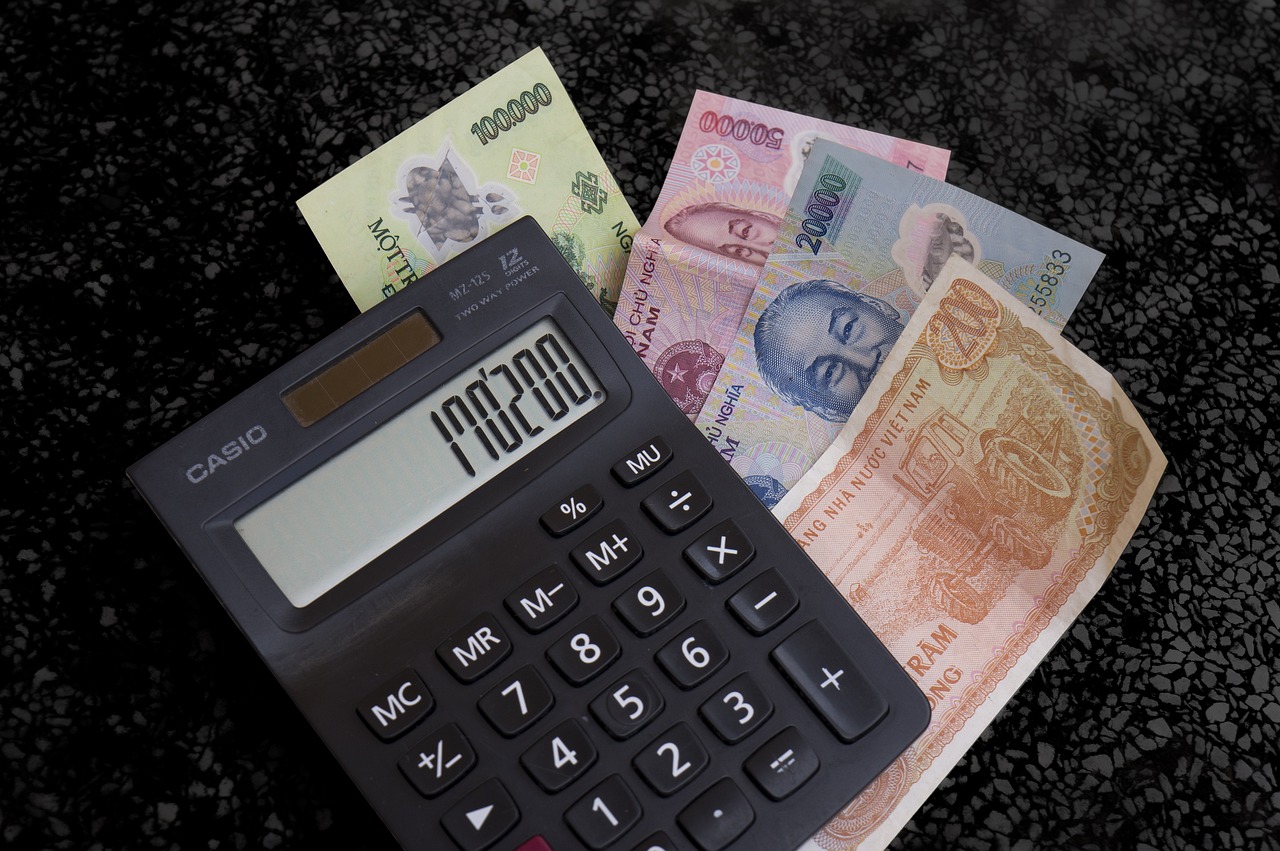Converting 1 Million Naira to US Dollars: Exchange Rates, Regional Variations, and Economic Impact
GPT_Global - 2025-10-26 08:00:25.0 37
Does 1 million Naira in US Dollars differ by region in the US?
When converting 1 million Naira to US Dollars, the exchange rate itself does not change based on the region in the United States — $1 USD remains the same in all states. However, the value of that money can differ significantly depending on where you are in the U.S. This means that while the currency conversion rate is fixed, the purchasing power of your funds varies by location.
For example, $1,000 in New York City won’t stretch as far as it would in Texas or Florida due to higher living costs, rent, and taxes. So, while 1 million Naira might equal roughly the same number of U.S. dollars everywhere, how much that money can buy differs from region to region.
For remittance businesses, understanding these differences is crucial. Sending money to family or partners in lower-cost states means they can make the most of every dollar. Therefore, when transferring funds from Nigeria to the U.S., it’s not just about the exchange rate—it’s about maximizing value based on the recipient’s location.

How can 1 million Naira be transferred to the US without losing much value in the exchange?
When transferring 1 million Naira to the US, the challenge is ensuring minimal loss due to exchange rate fluctuations and high transfer fees. To optimize the transfer, it's essential to choose the right remittance service that offers competitive rates and low transaction costs.
One option is to use a digital money transfer service like TransferWise (now Wise), which provides transparent exchange rates and low fees. These services typically offer better value compared to traditional banks, which may have hidden charges and higher margins on exchange rates.
Another way to reduce the cost of sending money is by timing the transfer. Exchange rates fluctuate daily, so transferring when rates are more favorable can help you get more USD for your Naira. Utilizing tools that monitor exchange rates can help you make an informed decision.
Lastly, consider using remittance businesses with partnerships or platforms that offer direct bank transfers, as these often come with lower fees. This approach ensures that you can send your 1 million Naira to the US without losing much value in the exchange.
How would the value of 1 million Naira change if the exchange rate rises or falls?
In the world of remittance, exchange rates play a significant role in determining the value of money when transferring funds across borders. For example, if the exchange rate between the Nigerian Naira (NGN) and a foreign currency rises or falls, it directly impacts the amount of money received by the recipient in Nigeria. Understanding how exchange rate fluctuations affect your remittance transactions is crucial for both senders and receivers.
When the exchange rate rises, meaning the Naira weakens against foreign currencies, the value of 1 million Naira decreases. This means that for the same amount of foreign currency sent, the recipient in Nigeria will get fewer Naira. Conversely, if the exchange rate falls, meaning the Naira strengthens, 1 million Naira becomes more valuable. In this case, the recipient receives a higher amount in Naira for the same amount of foreign currency.
For remittance businesses, monitoring exchange rates is vital. It ensures that customers are informed and can make better decisions when sending or receiving money. A small change in the exchange rate can have a substantial impact on the value of remitted funds. Whether you’re sending or receiving money, understanding these fluctuations can help you manage your remittance costs effectively.
What is the historical conversion rate between Naira and US Dollar over the last decade?
Over the past decade, the conversion rate between the Nigerian Naira (NGN) and the US Dollar (USD) has seen significant fluctuations, reflecting both local and global economic changes. In 2015, the exchange rate was relatively stable, hovering around 200 NGN to 1 USD. However, this changed drastically in the following years due to inflation, oil price fluctuations, and government policies. By 2020, the rate had risen above 400 NGN to 1 USD, with some parallel market rates even exceeding 500 NGN to 1 USD.
The trend has created challenges for Nigerians engaging in remittances, as exchange rate volatility directly affects the value of money sent across borders. For families relying on remittances, understanding the historical patterns of the NGN-USD exchange rate is crucial to maximizing the value of received funds. While the official exchange rate remains regulated, the black market plays a significant role in determining the final exchange rate for many remittance transactions.
As remittance businesses, it is vital to offer competitive rates and strategic timing for clients to navigate these fluctuations effectively. By doing so, companies can ensure that recipients receive optimal value for their hard-earned money, especially in uncertain economic times.
How does the US Dollar’s performance impact the value of Naira to Dollar conversions?
The performance of the US Dollar (USD) plays a significant role in determining the value of the Nigerian Naira (NGN) in Dollar-to-Naira conversions. When the USD strengthens against global currencies, it typically causes the Naira to depreciate. This fluctuation directly affects remittance rates, as individuals sending money to Nigeria may find that their recipients receive less value due to the devaluation of the Naira.
For businesses in the remittance sector, understanding the relationship between the USD and NGN is crucial for offering competitive rates to customers. A weak Naira can lead to higher costs for those sending funds abroad, while a stronger Dollar means better value for recipients in Nigeria. Remittance companies need to closely monitor currency trends to provide accurate and timely transfers, which can help build trust and customer satisfaction.
In conclusion, the performance of the US Dollar can have a profound impact on the value of Naira-to-Dollar conversions. For remittance businesses, staying informed about currency fluctuations allows them to offer better services, ensuring both senders and recipients benefit from favorable exchange rates.
Is it possible to convert 1 million Naira into more than 1 million US Dollars in the future?
The question of whether 1 million Naira can be converted into more than 1 million US Dollars in the future is intriguing, especially for individuals engaged in the remittance business. As the global currency market is highly volatile, the exchange rates fluctuate due to factors such as economic performance, inflation, and geopolitical events. Therefore, predicting currency conversion trends in the future can be complex.
Currently, 1 million Naira is worth far less than 1 million US Dollars, but this could change depending on the value of the Nigerian Naira and the US Dollar over time. If the Nigerian economy experiences significant growth, and the Naira strengthens against the Dollar, there is a possibility that this parity could be achieved. However, such a scenario would require substantial changes in market dynamics and economic conditions.
For those in the remittance business, it’s crucial to stay updated with global economic trends and exchange rates. Remittance companies can offer valuable insights to customers looking to transfer funds internationally, ensuring they maximize their value through favorable exchange rates. Staying informed is key to navigating future uncertainties in currency conversion.
How often does the Naira exchange rate fluctuate compared to the US Dollar?
The Naira's exchange rate against the US Dollar is known for its frequent fluctuations, driven by various factors. These include changes in Nigeria’s economic conditions, international oil prices, and the country's monetary policies. Typically, the Naira depreciates against the Dollar due to Nigeria's reliance on oil exports, which heavily influences its foreign reserves.
In recent years, the rate has fluctuated significantly, leading to uncertainty in remittance transfers. Remittance businesses are particularly affected by these shifts as the value of the Naira can vary considerably, impacting both the sending and receiving amounts. For individuals and businesses sending money to Nigeria, understanding these fluctuations is key to optimizing the value of their transfer.
Regular monitoring of exchange rates is crucial for remittance companies to provide accurate and efficient services. By keeping an eye on market trends and adjusting strategies accordingly, they can ensure their customers are always getting the best value for their transfers. Despite the volatility, remittances continue to play an important role in Nigeria’s economy, providing a vital source of foreign currency.
About Panda Remit
Panda Remit is committed to providing global users with more convenient, safe, reliable, and affordable online cross-border remittance services。
International remittance services from more than 30 countries/regions around the world are now available: including Japan, Hong Kong, Europe, the United States, Australia, and other markets, and are recognized and trusted by millions of users around the world.
Visit Panda Remit Official Website or Download PandaRemit App, to learn more about remittance info.



